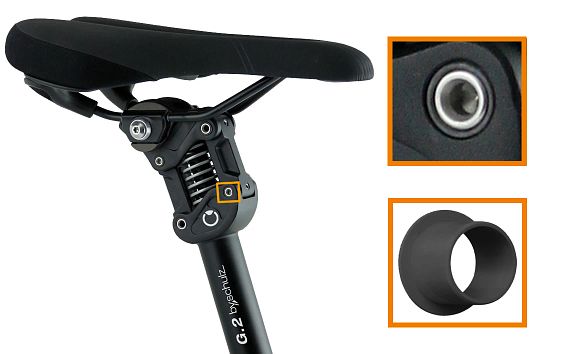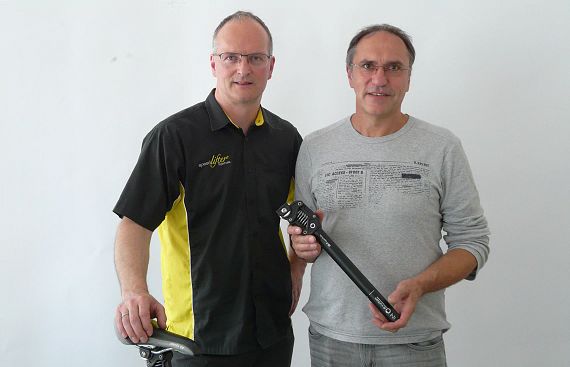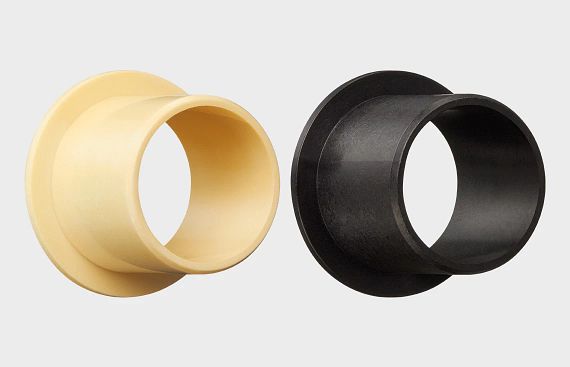Best suspension on the saddle with maintenance-free iglidur flanged bearings
Profile
- What was needed: Plain bearings for four bearing points at the pivot points of the parallelogram seat post
- Requirements: Wear resistance, low coefficient of friction, lubrication-free/maintenance-free, insensitive to edge pressure
- Field of application: Bicycle industry, bicycle components

Problem
A high quality of the components was important to the designers. Gerd Brücker, design engineer at by.schulz: "The aluminium tube is 3D forged with different wall thicknesses - this saves weight. The flat wire spring is located directly in the force flow and is 50 percent compressible. It takes the load well and responds faster than round wire springs." Elastomer elements serve as end stop. The material selection for the four bearing points at the pivot points of the support, whose spring is virtually clamped in a parallelogram, was also a matter of finding the best solution in terms of quality. The challenge: "The axle makes oscillating movements when it is spring loaded. In the process, the bearings are subjected to high stresses in a small section," says Brücker. In the first series brass bushings and stainless steel axles were used. This meant that the bearings had to be lubricated regularly, and the manufacturers wanted to avoid this in the further development of the prop. That's when igus bearings made of high-performance polymer with incorporated lubricant came into view - and initially faced reservations. "At first, we didn't believe that plastic bearings would meet our high requirements," says founder Markus Schulz. But the developers - always open to new ideas - were willing to try. This included both driving tests by.schulz with converted seat posts and special test series in the igus laboratory.Solution
The flanged bearings made of the material iglidur W360 achieved the calculated long service life and also offer further advantages. Gerd Brücker: "The friction value is low and so is the breakaway torque. That means the suspension is more responsive, there's no jerking." Due to the very good and reproducible dimensional accuracy of the injection-moulded bearings, the CNC machining of the adjacent metal components can also be carried out very precisely: Since there is no lateral play, tighter tolerances are possible during machining. Another advantage: plastic bearings are more forgiving of edge pressures than brass bearings: since the clearance only occurs when the bearings are pressed in, they adapt better to the surrounding structure. This also helps to ensure that the suspension always responds optimally. Lastly, the bearings are lightweight and require no additional lubrication.Markus Schulz points out that the question of "brass or plastic?" was not primarily a matter of cost: "For us, it's always about optimum function." However, the appearance also plays a role, which is why igus manufactures the bearings for by.schulz in a special black colour.
Learn more about iglidur W360 flanged bearing
"At first we did not believe that plastic bearings would meet our high requirements."
Markus Schulz, founder of by.schulz GmbH


Further information
Our plain bearings
An overview of all the important information relating to our iglidur plain bearings: standard and special parts, new products, laboratory tests and so on.Go to overview
Products for bicycle technology
Rear triangle, fork, seat post and co. - application areas for motion plastics in bicyclesDiscover now

